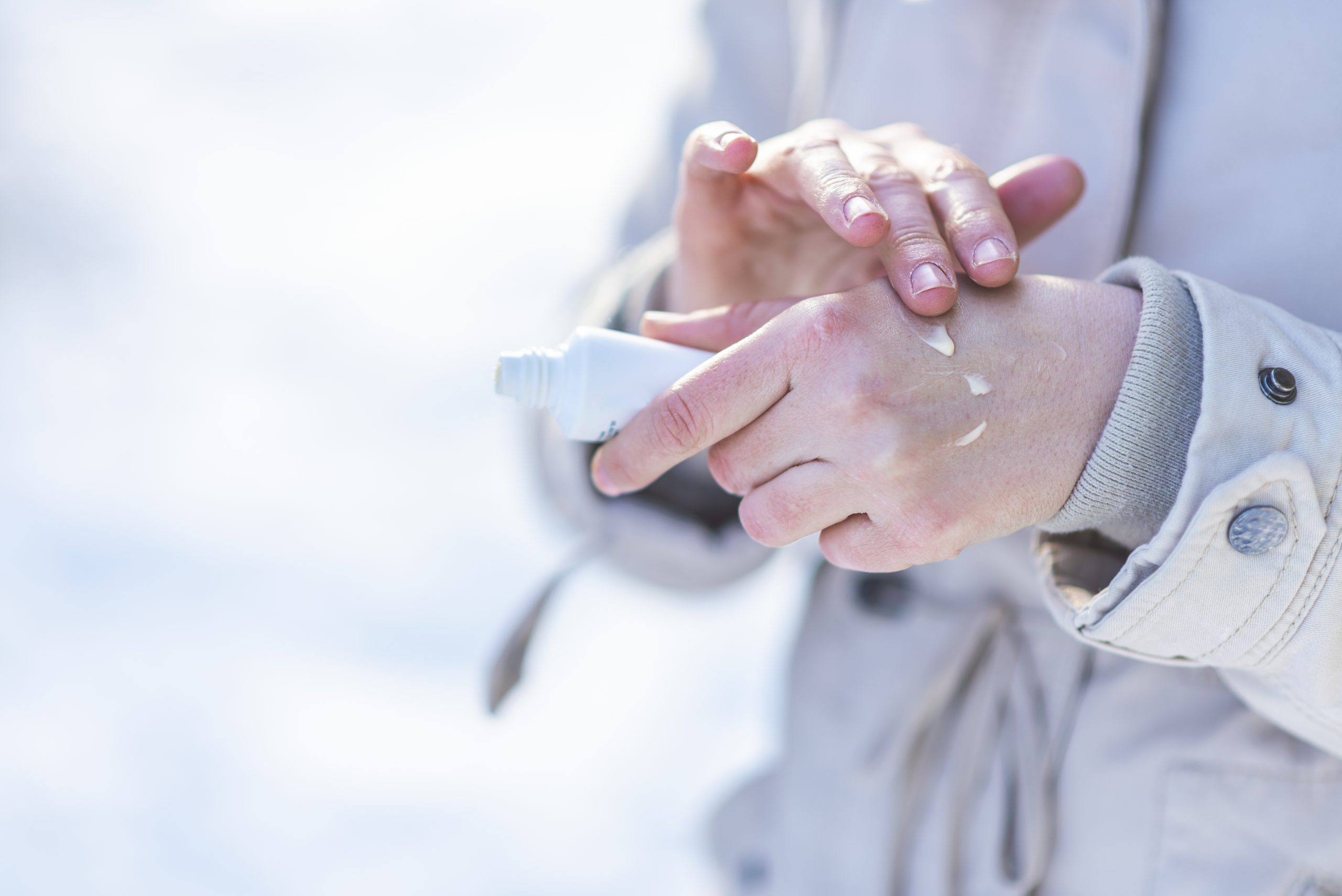Adam’s Journal
Here’s a question from a fellow Oklahoma Medical Research Foundation employee:
Why does dry skin get worse in the winter? And what can I do about it?
Dr. James Prescribes
The skin serves like the walls of a building, protecting it from outside forces while also keeping everything that belongs on the inside where it should be.
The outermost layer of skin is called the lipid barrier. Its job is not only to keep harmful elements such as bacteria and viruses out of our bodies, but it also keeps water inside us.
In winter, when the air grows cold, it loses the ability to hold as much water vapor. So, it feels – and is – drier than in warmer temperatures.
Unfortunately, heating up that dry air doesn’t moisten it. In fact, that process draws more moisture out of the air. As a result, whether inside or outside, our bodies are surrounded by dry air in winter.
Even though the outer layer of our skin is made up mostly of lipids – fats – it also contains water. All that dry air pulls the water from our skin, causing the skin to become dry, crack and flake.
Older adults and people with eczema are most susceptible to developing dry skin in cooler conditions, but it can happen to anyone.
To keep your skin healthy throughout the winter, avoid long, hot showers and baths. As soon as you’ve finished bathing, moisturize your face and body while your skin is still damp; this will help seal in the moisture.
When moisturizing, opt for fragrance-free moisturizers. The optimal moisturizer is a thick layer of petroleum jelly, which creates a physical barrier to lock in hydration. But if that seems too heavy or greasy for you, a cream (like Cetaphil or CeraVe) will work fine.
During winter, many of us guard against germs by often washing our hands or using hand sanitizer. Both of these can dry our hands, so it’s important to regularly apply moisturizer after we do so.
When outside, wear gloves to prevent hands from chapping. Similarly, cover up other parts of your body to avoid prolonged exposure.
Moisturizing frequently and regularly is key to avoiding dry, cracked skin. But if that doesn’t work, and especially if your skin is itching and keeping you up at night, make an appointment to see a dermatologist, who can prescribe therapies and recommend other approaches that may help.
–
Dr. Judith James is executive vice president and chief medical officer of the Oklahoma Medical Research Foundation. Adam Cohen is OMRF’s senior vice president and general counsel. Send your health questions to contact@omrf.org.



